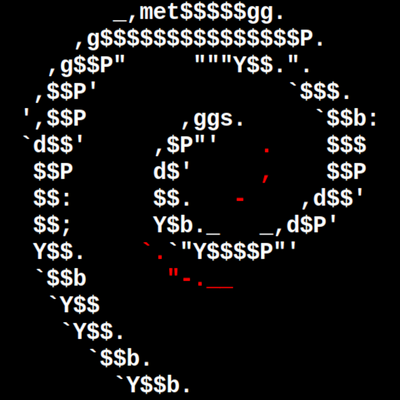- cross-posted to:
- technology@lemmy.ml
- sysadmin@reddthat.com
- technology@lemmy.world
- cross-posted to:
- technology@lemmy.ml
- sysadmin@reddthat.com
- technology@lemmy.world
Please don’t fuck up my beloved fedora. Kind regards.
Moving away from Fedora
I was wondering when Red Hat enshittification would began the moment IBM announced the acquisition. Turns out it begins today.
What’s to stop the CentOS-like distributions from each purchasing 1 copy of RHEL? Wouldn’t that copy still be under GPL, with the software freedoms intact -They can then change and give away anything based on RHEL - they might have to strip out any artwork that is RHEL-specific but they have to do that anyway. Would Red Hat be able to stop them under GPL? Could Red Hat just refuse the sale?
*sigh* Do I have to go abandon Fedora now too? I really hope they don’t pull a CentOS on that one
I highly doubt this would affect Fedora. Thankfully, it’s community driven and self-goverened so Red Hat execs can’t go and tell them what to do. (Though I don’t know how many ties the Fedora council had to Red Hat)
All of Fedora’s funding and IP comes from and belongs to Red Hat, this would be very persuasive. At least openSUSE has more sponsors than just SUSE.
How is this supposed to work with GPL ? Because anyone owning a copy is free to redistribute sources
The plan is to give the source Code to paying customers. This is gpl-compliant.
The concern is that Red Hat terminates your account if you redistribute the source to another party. This feels like an additional restriction placed on the source code, which if it is, would indeed violate the GPL.
Now THIS is a GPL-violation or at least a serious concern and asshole move.
Serious concern and asshole move? Yes. Gpl violation? Not sure. You could argue you are not restricted to do whatever you want with the code you receive with a subscription. But if you share the code, they don’t want you as a customer anymore and won’t give you new code. I don’t know if the GPL allows that.
This clearly goes against the intention of the GPL. Maybe not illegal.
Terminating a support contract, in itself, is not a GPL violation. The restrictions only affects the ability to receive future updates.
Edit: Red Hat indeed claims that no GPL violation is happening, yet they inform their customers that sharing updates leads to contract termination, which clearly breaches the GPL at least in spirit: https://sfconservancy.org/blog/2023/jun/23/rhel-gpl-analysis/
I think it depends on whether it’s considered an additional restriction on the recipient’s right to redistribute the software.
Saying, “you can redistribute the software but you will face _____ penalty” seems like a gray area to me.
Context is important. It’s possible that the software is distributed without any warning like that and that the termination of the support contract is done without citing the redistribution of previous versions as a reason. OTOH if the customers could prove that there’s widespread knowledge of the retaliatory termination that could be equivalent to a (non-written) restriction that is indeed incompatible with the GPL
The warning is in the agreement every customer (and free developer account) signs to obtain access. They also mention they could sue you, although I think it is unrealistic they would do so just for redistribution.
Yes more details would be good.
According to Alma Linux
“the way we understand it today, Red Hat’s user interface agreements indicate that re-publishing sources acquired through the customer portal would be a violation of those agreements.”
I haven’t seen this in person so I can only speculate, but I bet they’ll only provide the sources as a tarball or something instead of a git repo, which will make it a PITA for anyone do actually do anything useful with it. I mean, you could potentially still build a full distro from it, but you wouldn’t be able to feasibly maintain it without the ability to do a sync and merge from upstream. So this way, Red Hat achieves their goal of being able to kill any spinoff distro, whilst still remaining compliant with the GPL.
It’s not a “they will.” Red Hat customers are able to download source rpms from the repository or the site, this has been the case for a very long time. It is possible to clone / sync the repository, this is how airgapped networks can still host their own.
What may this cause to a casual fedora user?
It’s most probably IBM forcing it, but yeah it’s dumb.
I don’t know about that. IBM is traditionally stupid, yeah, but they wanted Red Hat for a reason. The CentOS debacle altogether was Red Hat, not IBM, and I don’t think they are doing too much day to day operational mandates for stuff like this. I would not be surprised if this was just a Red Hat thing. I know it’s easy to blame IBM, but I don’t think it’s that simple.
they wanted Red Hat for a reason.
They were dying and they needed a cash cow to milk. The only way that was gonna work is if they didn’t kick the cow and spoil that milk like they’ve kicked every cow before it. And they can’t stop, so they’re just kicking away.
if they didn’t kick the cow and spoil that milk like they’ve kicked every cow before it
I miss Cringely’s take on this.
. I would not be surprised if this was just a Red Hat thing.
It’s a tough one. We blame RedHat for a lot of its half-baked internal fridge art - systemd, network manager; and even, some days, yum in an apt-4-rpm world.
But this new one is QUITE the departure. It’s not ‘red hat’ stupid but a little further on the spectrum.
Lol, redhat is just butt hurt they lost the NASA Linux contract to rocky
I’m absolutely not surprised that NASA took CentOS-in-more-than-name over the people who are trying to kill Enterprise Linux.
NASA did their contract beforehand.
And it was only for a few workstations, still I think it caused Red Hat to panic. Government is a big customer.
Not surprised. A for-profit corporation wanting more money. Especially as we enroach further into late stage capitalism where corporations struggle to find more territory to profiteer from and squeeze more profit out of us.
The era of free services being profitable is ending rapidly, and we see this across many areas in the world.
I wouldn’t say they aren’t profitable, I would say the greed outweighs profitability.
You’re right. I should say “profit growth” which is what corporations look for. You can have solid growth, but unless it’s growing, they don’t care.
Part of the Capitalist mythos for sure, “if you’re not growing, you’re dying.” There’s a rejection of the idea that you could reach a healthy equilibrium of size and just remain there.
And because of the way the rest of the market works, it forces everybody to act like that or get beat out completely. Vicious feedback loops.
There’s a word for sth that grows unlimited and uncontrolled. Cancer.
IBM: We poured money and resources into Linux before 99% of the business world had even heard of it. We helped make it great. Why shouldn’t we require a return on that investment?
PLEASE UNDERSTAND, I think IBM/RH is bone-headed as heck and are now inexcusable violators of the GPL, and other licenses.
I knew they were going to *break* RH and make it something abominable.
But they *were* there at the very beginning of the 2000s, promoting Linux heavily. (Not altruistically, of course)
This is not a violation of the GPL. They are allowed to charge for access to the source. If you provide binaries/images to a customer, you also must provide source. However, anyone who doesn’t pay isn’t entitled to it.
However, this is still a total bonehead move.
But anyone with access to source code licensed under GPL can legally redistribute said source code. One of the fundamental freedoms is that if you are given GPL-licensed source code, you can modify and redistribute it as much as you like.
I think the real problem might be that some of the work from Red Hat doesn’t fall under the GPL, hence this wouldn’t apply, but I’m not sure.
Or what if they only distribute it to companies that sign an agreement not to redistribute? Then they have the right to redistribute according to the GPL, but if they do, Red Hat will kick them out. This would seem like a way to circumvent the fundamental ideas behind the GPL and free software. If they do this, I can no longer be supportive of Red Hat in any way, and will likely have to distro-hop away from Fedora due to this misalignment of ideology.
what if they only distribute it to companies that sign an agreement not to redistribute?
You may not impose any further restrictions on the recipients’ exercise of the rights granted herein.
Ohh, let’s see, pay for Redhat which will rot away without community support or use one of a dozen other distros. Sorry yum, it’s been fun.
you’d be surprised how many comps use RHEL just for the “I’m completely fucked and I need corporate level support” or “we need a data center completely off the rack” or “we wanna throw money at this problem” or “we need somebody to sue or point our finger at if we get majorly fucked” or “we need an OS that meets compliance” use cases. many comps won’t just use some random community built OS to run their shit regardless of the community support. at the end of the day, many corporations with very complex requirements don’t have many legitimate data center OS options available.
Fuck, I really hope this doesn’t turn the tides for other Red Hat projects.
Not even my Linux distros can escape the enshittiness. WTF man.
It’s ultimately because of capital. Capital controls resource allocation, so any project that requires resources will have to align with capital interests
Yeah fuck this move. Seems incredibly short sighted and a huge fuck you to the community.
@FrankTheHealer @REdOG I guess Debian based distros win.
Is there even a Debian based distro that is up to date like Fedora, does not have snaps and does not have “Unstable” in its name?
Siduction. It is rolling release though.
Just checked their website and it seems like they’re using debian sid packages. What’s the difference between using siduction and plain debian sid, besides having a preconfigured desktop?
I never used siduction, im juat aware of its existence. I think they add some stability(=reliability) on top of sid and also keep updating packages during sid’s freezes. Dont quote me on this.
consider PCLinuxOS for a mageia (mandriva, conectiva and mandrake, both branches from RedHat pre-Enterprise Linux) descendant.
Mint?
This is start of end RH.
I have seen IBM do this multiple times. When they buy a company, they leave it pretty much alone for a year or two. Then they start to make their IBM changes to it, and change it enough to make anyone that knew the product before them hate it. IBM buying RedHat was the beginning of the end. I told my boss about it the day I read the news of the IBM buyout, “We need to stop using CentOS for any new systems.”
I’m in process replacing CentOS with Debian. Don’t see point to use close source.





















